Piratech: passion for innovation and problem solving.
Piratech: passion for innovation and problem solving.
Date: December 21, 2022 - at 6.00 PM (Italian time)Where: Aula P2B - Complesso Paolotti
As a multidisciplinary team of technology enthusiasts, Piratech works with startups and scale-ups across a variety of industries to inspire, innovate, and complete the digitalization and tech transformation of companies. Our goal is to help companies embrace new technologies and unlock their full potential through digital transformation. We believe that by working together, we can help companies stay ahead of the curve and stay competitive in today’s fast-paced, technology-driven world. In this talk, we will share our professional journey and the story of how Piratech was founded. We will also highlight some of our ongoing projects and discuss potential internship and thesis opportunities available at Piratech.
The seminar will also be live in a ZOOM CALL
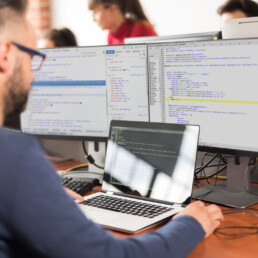
conference speaker
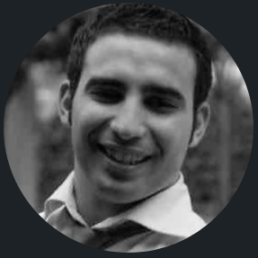
Ing. Marco Maglio
Graduated in Aerospace Engineering from the University of Padua, he completes a PhD in Computational Fluid Dynamics at the Institut de Mécanique des Fluides in Toulouse, France. Expert in programming languages such as C++, Fortran, Javascript (React) and Python, used over a decade. After experience working in multiple startups and companies abroad, including Cisco Systems, he returned to Italy to found Piratech, an IT consulting agency, with particular expertise in the cloud sector.
The pervasive polarization induced by social media, the "echo chamber effects,” and the impact on Supreme and Constitutional Courts across the globe.
The pervasive polarization induced by social media, the "echo chamber effects,” and the impact on Supreme and Constitutional Courts across the globe.
Date: November 18, 2022 - from 3.00 PM to 4.30 PM (Italian time)Where: Aula B, Physics and Astronomy Dept
The Talk will focus on how Supreme and Constitutional Courts across the globe are affected by the pervasive polarization process that social media and the “echo chamber effect” trigger. Born as non-partisan fora to adjudicate rights and solve institutional clashes, Courts are increasingly seen as taking sides in social and political disputes. The Talk will track down the phenomenon and propose two types of solutions: depoliticization and balancing a political court.
The seminar will also be live-streamed on YouTube channel "Aula Rostagni UniPadova DFA”

conference speaker
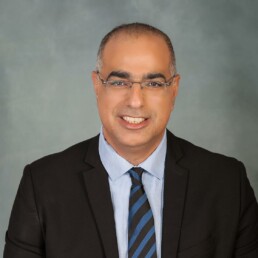
Moshe Cohen-Eliya
Moshe Cohen-Eliya is full professor of constitutional law at and the former President (2015- 2022) of the College of Law and Business (CLB), Israel. He is a council member of the International Society of Public Law (ICON-S), the founder of the Israeli chapter of ICON-S, and the founding editor-in-chief of the law journal Law and Ethics of Human Rights. He is an expert in comparative constitutional law. His publications include “Proportionality and Constitutional Culture ” (CUP, 2013, with Iddo Porat) and articles in the American Journal of Comparative Law, International Journal of Constitutional Law, and University of Toronto Law Journal.
A Smart Courthouse in a Smart City
A Smart Courthouse in a Smart City
Date: October 28, 2022 - h 16.30 (Italian time)Where: Aula Rostagni, Physics and Astronomy Dept
Technological developments are revolutionizing how we live together in a physical as well as in a legal sense. The deployment of technologically advanced and AI-based solutions is transforming the legal environment. The talk will focus on the technological turn in judicial proceedings in light of the broader movements to make our civilization “smart.”
The seminar will also be live-streamed on YouTube channel "Aula Rostagni UniPadova DFA”
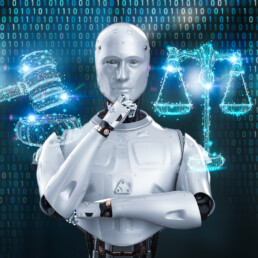
conference speaker
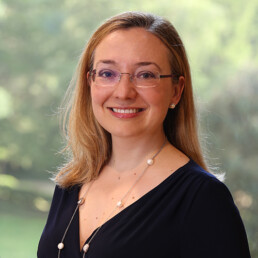
Iria Giuffrida
Iria Giuffrida is a Professor of the Practice of Law at William & Mary Law School and is the Interim Director of the LL.M. Programs. She also serves as Visiting Faculty for Business Law at the Raymond A. Mason School of Business. Professor Giuffrida’s research focuses on the legal issues arising from the increasing use of artificial intelligence, the rapid growth of the Internet of Things and smart cities, and related emerging technologies. In her previous professional life, she was a commercial litigator and gained substantial experience in international alternative dispute resolution. She is admitted to practice in the State of New York, is a Solicitor in England and Wales, and has qualified as a Solicitor in the Republic of Ireland. She is also a certified information privacy professional (CIPP/US). Professor Giuffrida graduated with an LL.B. in English and European Law from Queen Mary, University of London. She was the 2001 Drapers’ Scholar at William & Mary Law School, where she obtained an LL.M. She was later awarded a Ph.D. in Law by Queen Mary, University of London.
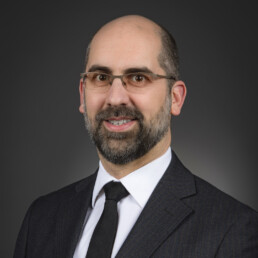
Nicolas Vermeys
Nicolas Vermeys, LL. D. (Université de Montréal), LL. M. (Université de Montréal), CISSP, is the Director of the Centre de recherche en droit public (CRDP), the Associate Director of the Cyberjustice Laboratory, and a Professor at the Université de Montréal’s Faculté de droit. He is also a visiting professor of law at both William & Mary (USA) and the University of Fortaleza (Brazil). Mr. Vermeys is a member of the Quebec Bar, as well as a certified information system security professional (CISSP) as recognized by (ISC)2, and is the author of numerous publications relating to the impact of technology on the law, including Droit codifié et nouvelles technologies: le Code civil (Yvon Blais, 2015), and Responsabilité civile et sécurité informationnelle (Yvon Blais, 2010). Mr. Vermeys’ research focuses on legal issues pertaining to artificial intelligence, information security, developments in the field of cyberjustice, and other questions relating to the impact of technological innovations on the law. He is often invited to speak on these topics by the media, and regularly lectures for judges, lawyers, professional orders, and government organizations, in Canada and abroad.
Metabolic ecology of microbial communities: from simple experiments to big data and back
Metabolic ecology of microbial communities: from simple experiments to big data and back
Date: September 21, 2022 - h 11.30 (Italian time)Where: Meeting room 207, entrance from via Paolotti, 2/a
Microbes assemble in diverse communities responsible for crucial functions, such as regulating the response of the biosphere to environmental variation and driving the bulk of elemental cycles. Understanding the factors shaping microbial community assembly is pivotal to predict the functioning of ecosystems in a rapidly changing world and design interventions to mitigate the loss of biodiversity and ecosystem services. In this talk, I will outline mechanistic links between changes in the diversity and structure of microbial communities and variations in fundamental environmental variables, specifically temperature and available nutrients. My work shows the power of combining theory-informed controlled experiments with data from communities in natural habitats to get a mechanistic understanding of the principles governing microbial community assembly.
ZOOM link: https://unipd.zoom.us/j/
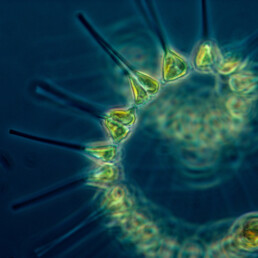
conference speaker
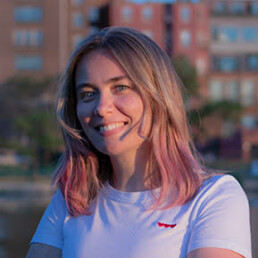
Martina Dal Bello
Martina is a microbial community ecologist and currently she is a research scientist in the lab of Jeff Gore at MIT. Martina holds a PhD in marine ecology from the University of Pisa, where she investigated the impacts of pulse perturbations and the occurrence of regime shifts in microbial and algal communities of rocky shore habitats by performing field experiments. She joined the Gore lab as a postdoc in 2017 to study the drivers of microbial community diversity using controlled laboratory experiments amenable to mathematical modeling. Her research aims at getting a mechanistic understanding of the relationship between environmental variables and microbial community assembly.
Digital Transformations in the News Industry and in the Economy: A Journey
Digital Transformations in the News Industry and in the Economy: A Journey
Date: March 15, 2022 - h 16.30 (Italian time)Where: Aula Rostagni, Physics and Astronomy Dept
What has digitalization meant for the economy and the news industry? How has the infosphere affected the job of journalists, the role of newspapers, and businesses? Marco Bardazzi had first-hand experience of such phenomena. An accomplished journalist, he transitioned from the traditional newspaper industry to the contemporary social media-dynamics that produce and spread news in real time. His talk will focus on how businesses navigate information society.

conference speaker
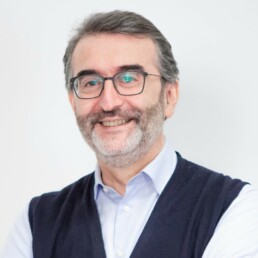
Marco Bardazzi
A professional journalist, Marco Bardazzi is the co-founder of Bea – Be a Media Company, a strategic communication agency based in Milan, Italy. From 2015 to 2020, Marco was Communications Director at ENI. As Executive Vice President, he was in charge of external communications, digital strategy, data analytics and reputation management in the Italian-based energy company, which is active in 60 countries with about 34,000 employees. Before joining ENI in 2015, he was Managing Editor and Digital Editor at La Stampa, a leading European newspaper, where he led the transformation of a traditional newspaper founded in 1867 into an integrated digital news organization.
Before joining La Stampa, Marco was U.S. Correspondent for the Italian news agency ANSA, for which he covered the 2000 Bush-Gore electoral race for the White House; the first international Al Qaeda trial in Manhattan; the September 11, 2001 attack on America the war in Afghanistan; the war in Iraq the 2004 and 2008 presidential campaigns.
Marco teaches at the Master of Journalism at the Catholic University of the Sacred Heart (Milan). He was awarded the 2017 Communicator of the Year prize at Premio Ischia. As a journalist, he received the Premio di Giornalismo Saint-Vincent Prize.
The Deep Cooking Era
The Deep Cooking Era
Date: February 28,2022 - h 16.45 (Italian time)Where: Aula Rostagni, Physics and Astronomy Dept
At Unox we have always been at the cutting edge of innovation in our market. We have developed many breakthrough solutions to control the exchange heat with food, move air, generate and remove steam inside the cooking chamber. Everyday we focus our efforts in investigating more efficient algorithms to precisely control the cooking processes. During the last five years we have been pushing the transition from building mere mechanical products, to smart and scalable digital solutions. To accomplish this revolution, we still need to find answers to many complex questions, such as: which are the biggest challenges in the future of the food equipment global market? How innovative sensors help to understand food properties? How can AI boost the performances and the reliability of the cooking processes? How will robotics shape the next generation cooking equipment? These and many more questions which we aspire to address with the amazing team which we are building.

conference speaker
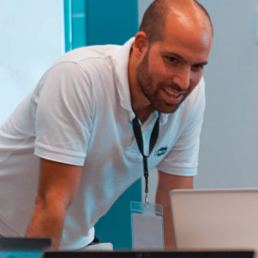
Mario Cammarota
I joined Unox in 2013 after a Master’s Degree in Physics and a PhD in Neurobiology at the University of Padua where I developed mathematical models and innovative experimental approaches to study neuronal networks in physiopatology.
At Unox I lead a team whose mission is to design and to develop smart cooking appliances for the most demanding professional catering market. We think about food as soft matter which is transformed by the cooking processes. The starting point of our research activity is the scientific study of the physical and chemical reactions that modify the organoleptic properties of the food and aims to develop all the technology needed to master these reactions in the most autonomous, efficient and reliable way.
The Interface between Artificial Intelligence and the Social Sciences - and Why it Matters
The Interface between Artificial Intelligence and the Social Sciences - and Why it Matters
Date: November 5,2021 - h 14.30 (Italian time)Where: Aula Rostagni, Physics and Astronomy Dept
The ‘secret sauce’ that made AI successful contains an important ingredient: vast samples of human behavior. From those, machine learning algorithms can extract the statistical rules that guide their own behavior: rules for recommendations, translations, image analysis, and more. Recently there have been concerns about subtle biases that might be found in AI agents, and some may be tracked just to the data that was used to train them, as well as to the fact that these agents are ‘unreadable’ to humans. Understanding the biases that are found in media content is important, as this is often what is used to teach machines to understand language. More generally, we need to understand the interface between AI and society if we want to live safely with intelligent machines.
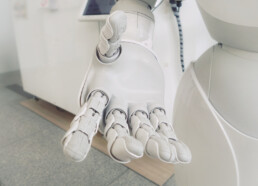
conference speaker
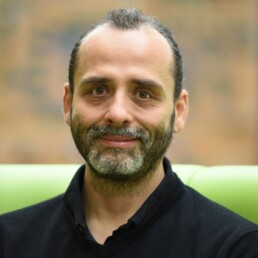
Nello Cristianini
Nello Cristianini is Professor of Artificial Intelligence at the University of Bristol. His research covers machine learning methods, and applications of AI to the analysis of media content, as well as the social and ethical implications of AI. Cristianini is the co-author of two widely known books in machine learning, as well as a book in bioinformatics. He is a recipient of the Royal Society Wolfson Research Merit Award, and of a European Research Council Advanced Grant. Before joining the University of Bristol, he has been a professor of statistics at the University of California, Davis. Currently he is working on social and ethical implications of AI. His animated videos dealing with the social aspects of AI can be found here: https://www.youtube.com/seeapattern
